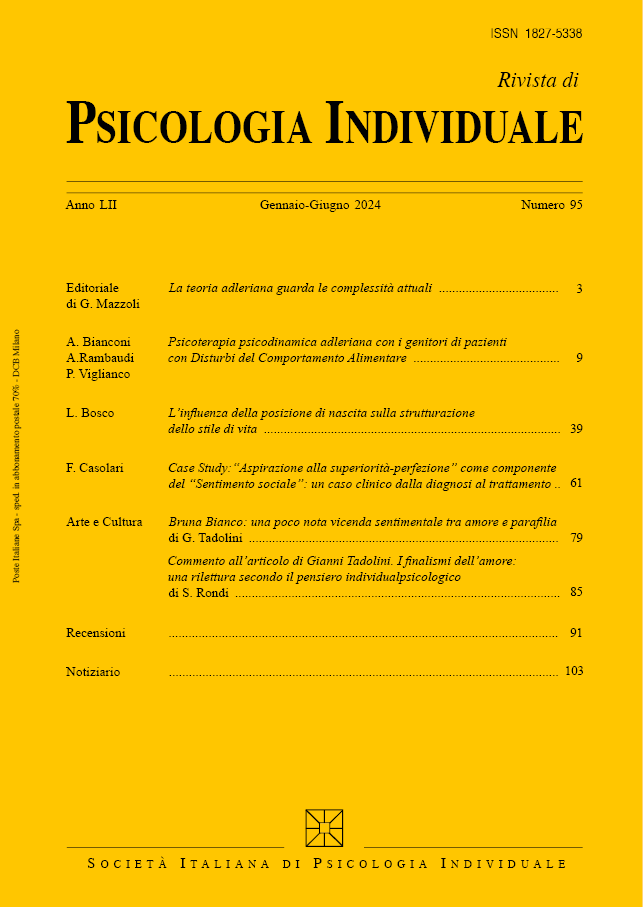An Adlerian approach to the lifestyle of social, healthcare, and educational institutions
Keywords:
individual analysis, aspiration to superiority, neurotic compensation, competitiveness, family counseling, school, rote learning, profit, national health system, will to power, community spirit, lifestyleAbstract
Every family, community, or institution can be examined using individual analysis methods, provided that it has been perfectly identified and defined beforehand. The analyst must then compare the identity, aims, and work of the institution (its lifestyle) with his or her psychological theory, also assessing the synergy it has with its context and the impact it has on the social world. The lifestyle of the institution does not necessarily correspond to that of its operators (which may be harmonious, neurotic, or psychotic), but may also be characterized by aspirations for security, aggression, and resentment towards the outside world, feelings of guilt, and ethical pretense. The technical role of the institution (saving and profit even in the healthcare system) can conflict with its ideological and political role, and both can also lead to the underestimation of empirical data. Similarly, in educational institutions, rote learning, competitiveness, and profit can be detrimental to the sense of community, functioning as true neurotic compensations. Cooperation and division of labor, dictated by a sense of community, on the other hand, do not undermine legitimate aspirations to superiority, but free us from the slavery of the lust for power, as can be clearly seen, for example, from an analysis of the functioning of family counseling centers






